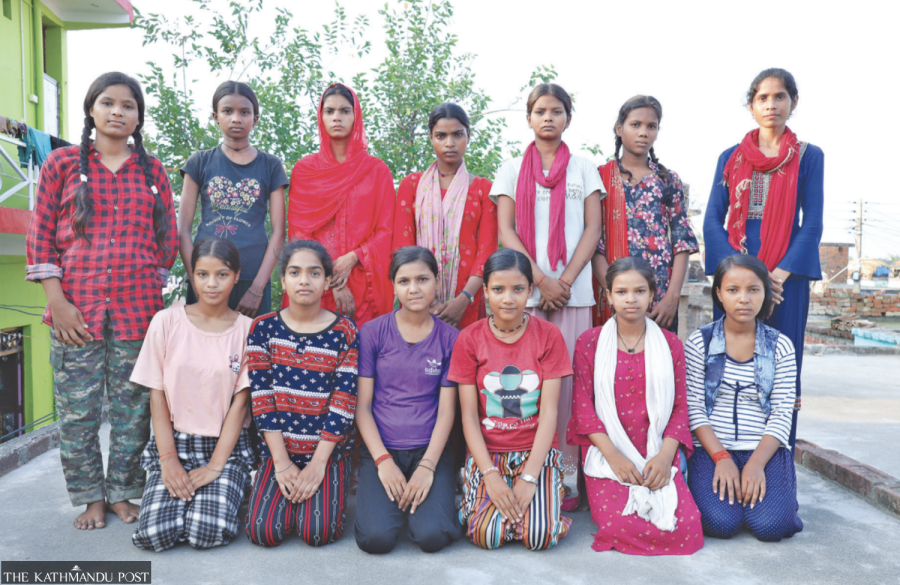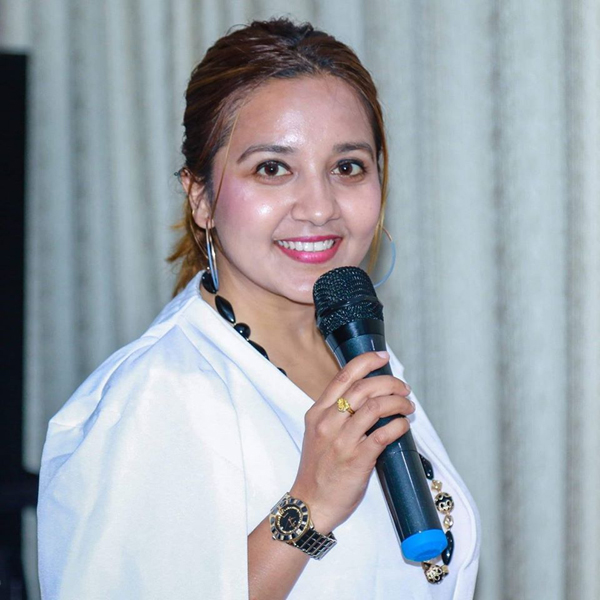Lumbini Province
Community initiatives in Lumbini Province are helping dropout girls return to school
In the villages of Rupandehi, cultural norms and economic pressures keep many Dalit and Muslim girls from school.
Sanju Paudel
Ashma Khatun of Manrahawa in ward 4 of Lumbini Sanskritik Municipality of Rupandehi district is currently a ninth grader at a local school. She returned to school just a few years ago after attending a madrasa, a Muslim educational institute. She had to leave her education because of her family’s poor financial status while in the fifth grade. “I wanted to study. But my parents didn’t want me to,” she said. “I was scared that my dream of becoming a teacher wouldn’t come true, but I’m glad I’m able to study now because of the encouragement I received from my friends.”
After her parents stopped sending her to school, Ashma looked for support from her friends. She enrolled in the eighth grade last year after her friends convinced her grandfather. Despite initial reluctance, her grandfather used his elderly allowance to pay for her enrollment. “When my parents didn’t agree, my friends convinced my grandfather, I cried and pleaded too,” she said, sharing her experience.
With her grandfather’s help, Ashma bought books, notebooks and the school uniform and started going to school. But, her parents weren’t very happy about it. They started scolding her. She even promised them that she would finish her chores at home before going to school. “I don’t understand why my parents don’t want me to attend school,” she said. She has also been beaten by her parents during arguments about her studies.
Rina Harijan from Amari in the same ward has a story similar to Ashma’s. She is now happily enrolled in a school and is studying. The 16-year-old has two sisters and one brother.
Her familial situation is also not very different from Ashma’s. She said that she had to drop out of school due to poverty. Her education had completely stopped during the Covid pandemic. But fortunately, she got the support from some well-wishers and has now enrolled in grade eight. “Currently I’m doing labour work to support my education,” she said. “I’m also helping with household expenses.”
Rina was deeply disappointed as she could not continue her studies. She strongly believes that one should get education for a secure future. She used to get angry as her family members did not send her to school. Initially, she felt angry that her family did not send her to school. However, since returning to school, she has experienced a change in her feelings of anger, frustration, and lack of respect towards her elders. She collects grass and firewood to save money for her food and her education.
In the rural areas of Rupandehi, a Tarai district of Lumbini Province, Madhesi-Dalits and Muslims make up the majority. Parents who have many children make their daughters work at home and farm from an early age. Even when girls reach school age, parents continue to prioritise their sons’ education, keeping their daughters to household duties. Excuses such as fears of increased dowry demands for educated girls or concerns about marriage’s longevity often prevent girls from pursuing studies.
However, not all stories are alike. Fourteen-year-old Sagar Yadav of ward 8 of Lumbini Sanskritik Municipality persuaded his parents to allow his elder sister Manju Yadav to return to school.
“After I realised that my sister should also have the opportunity for education like me, I argued with my parents on her behalf,” he said.
Sundrawati Harijan also faced many obstacles before she could go to school. A resident of ward 9 of Lumbini Sanskritik Municipality, she understood the importance of education for overcoming problems like being disrespected. “When I had to leave school, I used to wonder about everything in the world, outside my village,” she said. “A solution came around when I felt a strong desire to study. I want to be a teacher after completing my studies,” she added.
Kishori Sambad Samuha, which are organised groups of adolescent girls, have played an instrumental role in getting girls back to school. These groups, formed in various villages, have created an environment for Ashma, Rina, Sundrawati and many other girls who have dropped out of school and were stuck in the household chores after the Covid period. These groups formed by the Sungabha Community Development Centre, an NGO, educates the girls on life skills, their rights, and the importance of education.
According to Srijana Chaudhary, programme coordinator of Sungabha Community Development Centre, the discussion groups help teenage girls continue their studies. “We support the girls who come to the group for help. We create an environment for their school education and also provide financial support to those who have dropped out of school due to poverty. The groups also counsel parents and convince them to send their daughters to schools,” said Chaudhary.




 16.16°C Kathmandu
16.16°C Kathmandu













